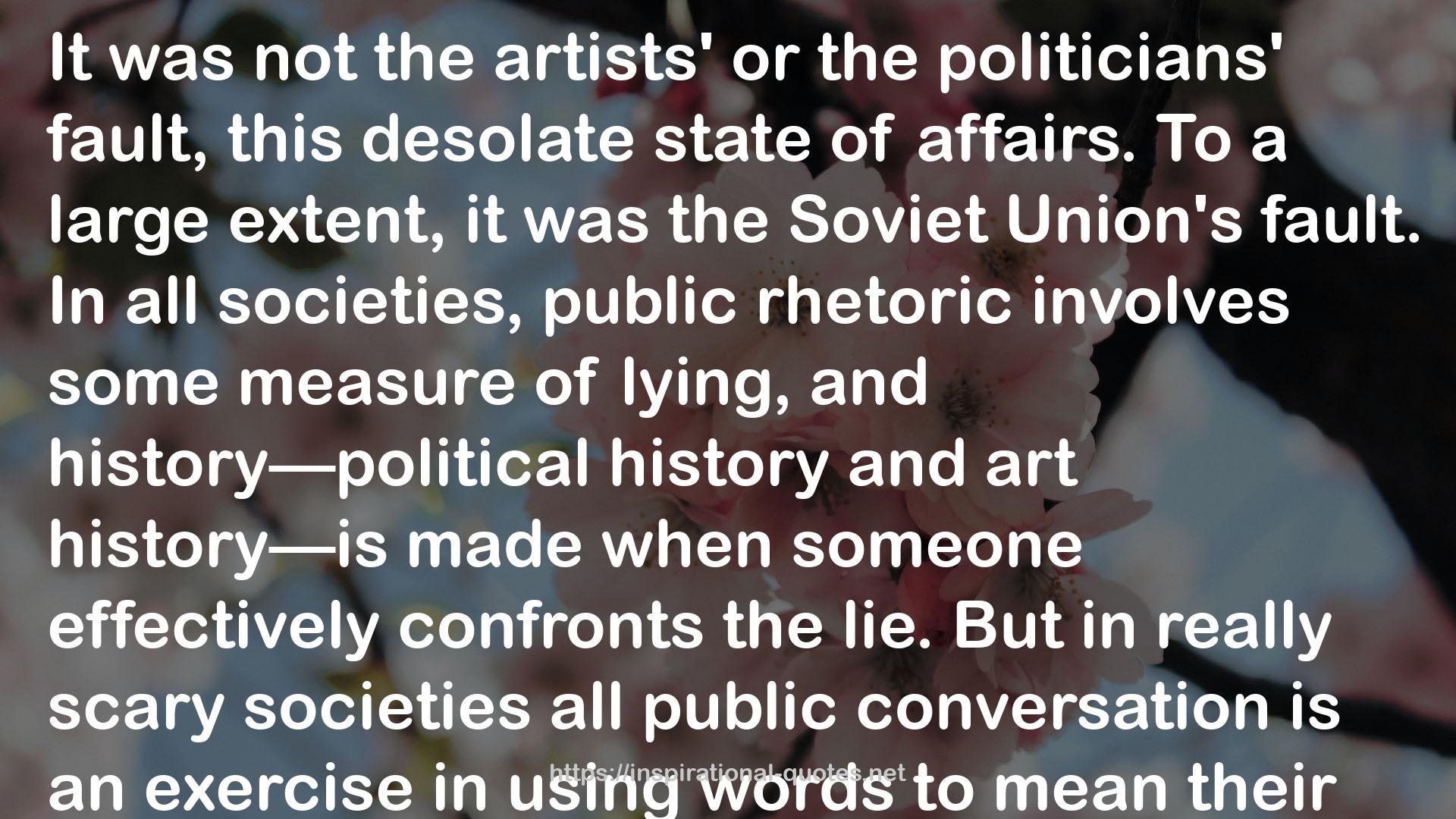" It was not the artists' or the politicians' fault, this desolate state of affairs. To a large extent, it was the Soviet Union's fault. In all societies, public rhetoric involves some measure of lying, and history—political history and art history—is made when someone effectively confronts the lie. But in really scary societies all public conversation is an exercise in using words to mean their opposites—in describing the brave as traitorous, the weak as frightening, and the good as bad—and confronting these lies is the most scary and lonely thing a person can do. These are the societies of Aldous Huxley's "Brave New World," or Yevgeny Zamyatin's "We," which preceded it. In Zamyatin's utopia, the guillotine was known as the Machine of the Benefactor, people were known as Numbers, and the power of words was well understood: "Whoever feels capable must consider it his duty to write treatises, poems, manifestos, odes, and other compositions on the greatness and beauty of the United State," Zamyatin had based his dystopia on the Soviet state he witnessed being constructed. Half a century after this death, real words that corresponded to actual facts and feelings broke through in a sudden, catastrophic flood and brought down the Soviet Union. But that heady period of Russian history was winding down by the time Petya and Nadya were learning to talk. Voina faced a challenge that perhaps exceeded challenges faced by any other artist in history: they wanted to confront a language of lies that had once been effectively confronted but had since been reconstructed and reinforced, discrediting the language of confrontation itself. There were no words left. "
― Masha Gessen , Words Will Break Cement: The Passion of Pussy Riot
